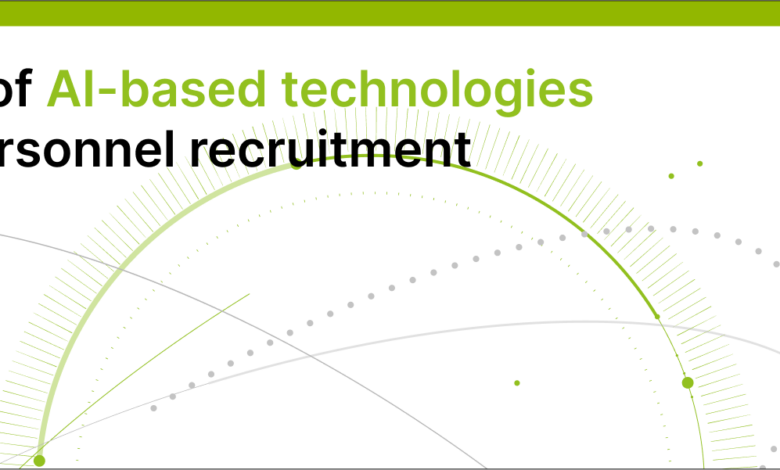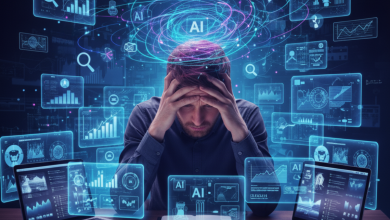
In today’s world, where competition in the labor market is reaching unprecedented levels, large companies and recruitment agencies receive hundreds and sometimes thousands of resumes for every open position. This process requires significant effort and resources as companies strive to find that right candidate. In this race for talent, HR professionals play an important role in the selection and initial processing of resumes.
One of the significant challenges in the recruitment process is the manual processing of resumes. This routine and time-consuming process requires a lot of time, effort, and concentration.
How can AI-based technologies help HR recruiters in the recruitment process?
Machine learning technologies and large language models (LLMs), unlike traditional systems, can significantly improve search accuracy and find highly qualified, relevant professionals. Intelligent search can help you find candidates who perfectly match the job requirements much faster than using manual methods or conventional search systems with filters.
Imagine that an HR specialist can ask a free-form query, such as “experienced Python developer”, or simply specify a set of keywords such as “data science, machine learning, TensorFlow”. A natural language processing (NLP) module will analyze the query, highlighting key skills and competencies. Moreover, AI-based technologies offer unique functionality to search for similar candidates.
After uploading a resume file, the service analyzes its content, extracting key skills, work experience, education, and other important parameters. Based on this analysis, the system searches its database for candidates with as similar a profile as possible, offering the HR specialist a relevant list of alternatives. AI-based tools can significantly reduce search time and increase the efficiency of recruiters’ work. And that future has already arrived.
As a result, the use of intelligent technologies in recruiting opens up new opportunities for effective search and selection of highly qualified specialists, optimizing processes and reducing time costs.
At what stage of candidate selection is it most effective to apply such technologies?
Many companies are now beginning to implement automated systems for processing resumes. Such technologies as machine learning and artificial intelligence help speed up the initial selection process by analyzing resumes according to specified criteria and identifying the most suitable candidates. This not only saves HR professionals time, allowing them to focus on analyzing the top 3–5 resumes that perfectly fit the job, but also on more strategic tasks, such as creating and maintaining corporate culture.
Moreover, machine learning-based services can be delegated organizational tasks, such as specifying meeting times and scheduling interviews. Thus, the combination of human expertise and modern technology can significantly improve the recruitment process, making it more efficient, focused and faster.
How well can an AI do its job compared to a live specialist?
In our realized case study, the system spends a few seconds to search for 100 relevant candidates from a database of 200,000 candidates for a position described by a free text query. In the course of using the technology, the HR specialist contacted 9 candidates out of 10. Thus, the use of machine learning-based technologies shows high accuracy in initial screening and significantly reduces routine resume search operations.
How ethical is it to give AI such an area as recruitment?
The modern labor market is undergoing significant changes, and the routine work of analyzing hundreds of resumes is becoming a thing of the past. With the rapid digitalization and automation of processes, the one who is more adaptable to these changes wins. Over the past thirty years, resume writing has transformed from a creative process to a more mechanical one. Previously, resumes could be literary works where candidates tried to emphasize their accomplishments and skills with vivid phrases and figurative expressions.
Today, however, experienced HR professionals rarely read resumes in their entirety during the initial screening phase. Instead, they scan the documents, looking for keywords and specific skills that match the job requirements. Thus, if a candidate fills their resume with long and artistic texts, their chances of having their resume read by a recruiter in more detail are greatly reduced. However, it is worth noting that with the advancement of artificial intelligence technology, a creatively designed resume may get a chance of attention if it is properly structured and contains important keywords.
Could AI completely replace HR professionals in the future?
AI is already revolutionizing the HR industry. It can analyze candidate data, match relevant resumes, minimize the impact of human biases, and much more. However, despite all the achievements of intelligent technologies in automating tasks, it is still impossible to completely replace a live HR specialist.
The main reason is that the human factor plays a key role in the recruitment and HR management process. Psychology, emotional intelligence and the ability to empathy are qualities that AI cannot yet replicate at the human level. HR professionals not only evaluate candidates’ professional skills, but also consider their personalities, motivation and cultural fit with the company.
These aspects require a deep understanding of human nature and the ability to emotionally connect, which AI is currently unable to achieve.
It is important to remember that technology should complement the human experience, not replace it. Thus, combining AI and human capabilities can create a more efficient and harmonious work environment.



